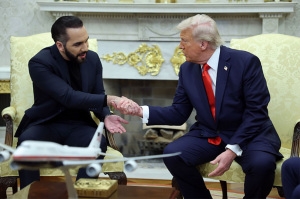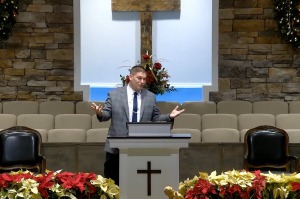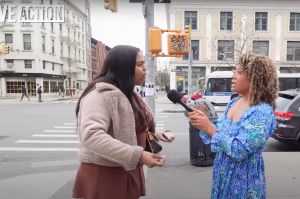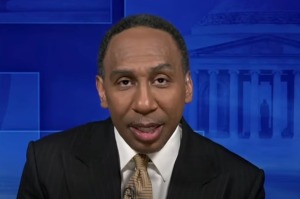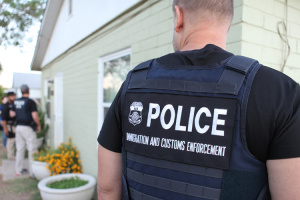World Relief CEO: Global Aid Programs Need to Break Down White Savior Image
Correction Appended
PHILADELPHIA – In efforts to help the global poor, Christians need to listen, build friendships, and break down the power gap with those they serve, explained Stephen Bauman, president and CEO of World Relief, in a Saturday interview with The Christian Post at The Justice Conference.
The image of the white savior is a powerful one in relief efforts, many have observed. While well-intentioned, Westerners can perpetuate the power differential between themselves and those they serve. Bauman told a story of how he experienced this problem himself after he went to Africa in 1994.
It took three years, Bauman recalled, before he could build a strong enough friendship with an African that he would speak openly to Bauman. Bauman asked him how he felt about the help his country was receiving from Bauman's group of Americans. The culture there values honor over truth, Bauman explained, so it took time before his friend would speak candidly to him.
"When you [Westerners] speak, we must listen," Bauman recalled his friend saying. "When you give, we have no choice but to receive."
"He began to unpack this idea of a power differential. No matter how well intended I was, and still am, we have to grapple with how you close that power differential gap. And that is not easy to do," Bauman said.
Some of the ways to do that, the World Relief CEO said, is to bring those who receive aid into the strategy and planning, and to give them power. Too few who work in relief efforts are talking about transferring power, Bauman believes.
"It's harder to transfer power, especially for us in the West," he said.
At the same time, there are some easy ways to work toward breaking down the power differential, he added, such as friendship.
"I had a sufficient enough friendship for someone to be honest with me and it changed me and is still changing me now. So, how do you become friends with those who suffer or are close to suffering so that the equation changes – no longer is that an object of my charity, but actually they are a friend?"
During the keynote address at The Justice Conference, Ken Wytsma, spoke about the difference between "standing up" and "sitting down" for justice. Standing up is doing the work of justice, the action part of justice. Sitting down is the listening and learning part of justice.
For one of his presentations at the conference, Bauman illustrated the sitting down part. He interviewed Cyprien Nkiriyumwami, a Rwandese who is supporting World Relief in its relief and peace building efforts in Eastern Congo.
The purpose of the conversation, Bauman said, is to "demonstrate that we need to sit and listen to people who are not North American" and "understand justice from people like him." "Our culture is ADD – I want it now, I want to get this, but perhaps the most important voice is the voice that's not in the room."
Correction: Thursday, Feb. 28, 2013:
An article on Sunday, Feb. 24, 2013, about global aid programs incorrectly stated that Cyprien Nkiriyumwami is Congolese. Although Cyprien lived most of his life in Congo, he was born in Rwanda and is technically Rwandese.
















